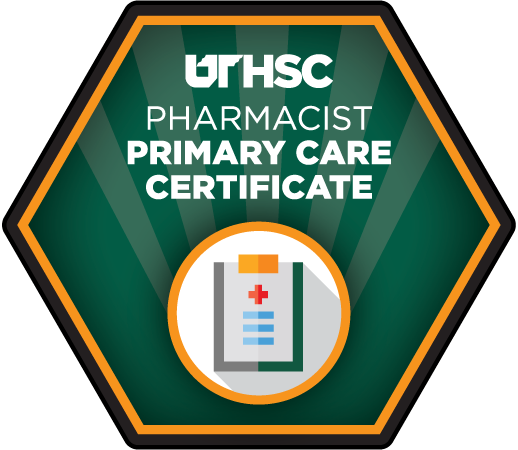
How to Become a Care Certificate Holder: Expert Guide
Becoming a Care Certificate is a rewarding career choice. It involves dedication and learning new skills.
The Care Certificate is an essential qualification for health and social care workers in the UK. It ensures that workers have the basic skills and knowledge needed for their roles. Understanding how to earn this certificate can be vital for those entering the care industry.
It not only enhances job prospects but also improves the quality of care provided to patients and clients. This guide will walk you through the steps needed to achieve the Care Certificate, highlighting its importance and the opportunities it can unlock in the care sector. Let’s explore what it takes to start this fulfilling journey.

Introduction To Care Certificate
The Care Certificate is a fundamental credential for anyone entering the health and social care field. It is especially vital for those pursuing entry-level care jobs. This certification ensures that new caregivers have the essential skills and knowledge required for their roles. Understanding the Care Certificate is crucial for anyone considering a career in caregiving. It acts as a stepping stone towards more advanced health and social care qualifications.
Understanding The Care Certificate
The Care Certificate was introduced to improve the quality of care across the UK. It sets a standard for new care workers. This standard ensures they understand their responsibilities and the care standards and regulations they must follow. The certification covers a range of important topics. These include safeguarding, health and safety, and effective communication.
Entry-level Care Jobs
Many people start their careers in health and social care by taking entry-level care jobs. These positions often require the completion of the Care Certificate. It demonstrates that the worker has completed basic care skills training. This training is essential for providing high-quality care and support to those in need.
Care Skills Training
Care skills training is a core component of the Care Certificate course. It covers practical skills that caregivers use daily. For example, moving and handling techniques, personal care, and infection control. This training prepares new caregivers for the challenges they will face in their roles.
Mandatory Training For Care Workers
Mandatory training for care workers ensures they meet specific safety and quality standards. The Care Certificate includes this mandatory training. It provides a foundation of knowledge that all care workers must have. This training helps maintain high care standards and promotes safe working practices.
Care Worker Certification
Care worker certification is an important step in becoming a caregiver. The Care Certificate is part of this process. It certifies that a caregiver has completed the necessary training and understands their duties. This certification is recognized throughout the health and social care sector.
Care Certificate Training
Care Certificate training is comprehensive. It covers 15 standards that caregivers must meet. These standards include understanding privacy and dignity, communication, and safeguarding adults. Training is both practical and theoretical, ensuring caregivers are well-prepared for their roles.
Health And Social Care Qualifications
The Care Certificate is the first step in obtaining health and social care qualifications. It lays the groundwork for further study and professional development. Completing the certificate can lead to more advanced qualifications, enhancing career prospects.
Becoming A Caregiver
Becoming a caregiver involves more than just a desire to help others. It requires specific skills and knowledge. The Care Certificate provides this foundation. It equips new caregivers with the tools they need to succeed and provide excellent care.
Care Standards And Regulations
Care standards and regulations ensure consistent quality in care services. The Care Certificate aligns with these standards. It provides a framework for caregivers to deliver safe and effective care. Understanding these regulations is crucial for anyone entering the care profession.
Care Certificate Course
The Care Certificate course is designed to be accessible and informative. It includes both online and practical components. This approach allows learners to gain a well-rounded understanding of their role. Completing the course is an important step in starting a career in care.

Importance Of Care Certificate
The Importance of Care Certificate in the care industry cannot be overstated. It serves as a foundational training program for care workers, providing them with essential skills and knowledge. This certification ensures that they can deliver high-quality care to patients. By obtaining this certificate, care workers not only enhance their professional capabilities but also contribute significantly to the overall standards of patient care. It is a crucial step for anyone aspiring to work in health and social care, as it sets a benchmark for quality and competence.
Benefits For Care Workers
Obtaining a Care Certificate offers numerous benefits for care workers. It is a crucial step in their professional journey, enhancing their skills and career prospects. Here are some key benefits:
- Enhanced Care Worker Skills: The training equips care workers with essential skills needed for patient care, ensuring they are well-prepared for various challenges.
- Professional Development: It promotes continuous learning and growth, encouraging care workers to stay updated with the latest practices.
- Care Certificate Benefits: Possessing this certificate makes care workers more attractive to employers, increasing their job opportunities and potential for career advancement.
Below is a simple table that highlights the core components of the Care Certificate training:
| Component | Description |
|---|---|
| Introduction to Care | Basic principles and expectations in care work. |
| Health and Safety | Ensuring safety for both workers and patients. |
| Communication Skills | Effective communication with patients and colleagues. |
Impact On Patient Care
The Impact on Patient Care due to the Care Certificate is substantial. It directly influences patient outcomes and care quality. Here are some key aspects:
- Patient Care Standards: The Care Certificate sets a benchmark for patient care, ensuring consistent and high-quality service delivery.
- Impact on Patient Outcomes: Trained care workers are better equipped to handle patient needs, leading to improved health outcomes and patient satisfaction.
- Health and Social Care Qualifications: The certification ensures that care workers have the necessary qualifications, enhancing trust and reliability in the care they provide.
Care Certificate Training ensures that care workers are well-versed in best practices, leading to safer and more effective care environments. By standardizing the skills and knowledge needed, the Care Certificate plays a vital role in improving the overall quality of care in the industry.
Eligibility Criteria
Embarking on a journey to earn a Care Certificate is a significant step in professional development in healthcare. Understanding the eligibility criteria is crucial for those interested in pursuing this care assistant certification. This certification is an essential part of mandatory training for carers and ensures that individuals possess the necessary skills and knowledge to provide quality care. It is designed for those working within health and social care, aiming to enhance their support worker training and meet care sector requirements.
Who Can Apply?
Eligibility for the Care Certificate is broad, making it accessible to various individuals within the healthcare field. Generally, it is intended for those starting their career in health and social care, particularly as care assistants or support workers. Here are key points regarding who can apply:
- New Starters: Individuals newly appointed to roles in healthcare, such as care assistants or support workers.
- Existing Staff: Current staff members seeking to formalize their skills through care certificate training.
- Supervisors: Those in supervisory roles who oversee direct care workers.
Below is a table outlining the typical roles that may require the Care Certificate:
| Role | Description |
|---|---|
| Care Assistant | Provides direct care and support to individuals. |
| Support Worker | Assists individuals in daily activities and promotes independence. |
| Healthcare Worker | Engaged in various healthcare tasks under supervision. |
Anyone in these roles can benefit significantly from the Care Certificate, enhancing their vocational qualifications in care and aligning with care compliance standards.
Required Qualifications
The Care Certificate does not have stringent formal qualifications. Instead, it focuses on practical skills and understanding. Here are the fundamental requirements:
- Basic Literacy and Numeracy: Applicants should have basic reading, writing, and numerical skills.
- Commitment to Learning: A willingness to engage in ongoing professional development in healthcare.
- Hands-On Experience: Some practical experience in a health and social care setting is beneficial.
Healthcare qualifications can enhance one’s application, but they are not mandatory. The emphasis is on mandatory training for carers that equips them with essential skills. The training covers areas such as:
- Effective communication
- Health and safety practices
- Understanding of care compliance standards
These skills are vital in ensuring high-quality care and meeting care sector requirements. The Care Certificate provides a structured approach to achieving this goal, offering a comprehensive framework for support worker training.

Training Requirements
Becoming certified in caregiving can boost your career in the health and social care sector. Understanding the training requirements is crucial to achieving the Care Certificate. This certification validates your skills and knowledge in providing high-standard patient care. It involves a structured learning path with essential training modules and supplementary resources. These components ensure that you meet the Care Certificate training standards and excel in your caregiving role.
Mandatory Training Modules
To earn the Care Certificate, you must complete a series of mandatory training modules. These modules cover critical areas in caregiving, ensuring you have the necessary skills and knowledge.
- Understanding Your Role: Learn about your responsibilities and how you contribute to patient care.
- Personal Development: Focus on continuing professional development and improving your caregiving skills.
- Health and Safety: Gain insight into maintaining a safe environment for both patients and staff.
- Equality and Diversity: Understand the importance of respecting diverse backgrounds in care settings.
- Communication: Develop effective communication skills to enhance patient interactions.
Each module includes a competency assessment to ensure you understand the concepts. Completing these modules is essential for meeting patient care standards and achieving the Care Certificate. The structured approach of the mandatory training helps in workforce development and aligns with care sector qualifications.
Additional Learning Resources
Besides the mandatory modules, additional learning resources can enrich your knowledge and skills. These resources support your journey in achieving the Care Certificate.
- Online Courses: Numerous websites offer courses on health and social care topics.
- Workshops and Seminars: Attend events focusing on new trends and practices in caregiving.
- Books and Publications: Explore materials on caregiving skills and patient care standards.
- Mentorship Programs: Engage with experienced caregivers for insights and guidance.
Utilizing these resources enhances your competency and prepares you for real-world caregiving challenges. They provide a comprehensive understanding of the care sector and contribute to your overall professional growth. Learning resources for caregivers are vital for continuous improvement and ensuring high-quality care delivery.
Assessment Process
The Care Certificate is a set of standards that health and social care workers must follow. It ensures that they meet the fundamental skills and knowledge required in their roles. The assessment process plays a critical role in this journey. It validates whether the learners have understood and can apply these standards in real-life scenarios. Understanding the assessment process is crucial for anyone aiming for a career in this field.
Types Of Assessments
The assessment process for the Care Certificate involves different methods to evaluate a learner’s understanding and skills. Each type caters to various aspects of learning and competency.
- Direct Observation: Observers watch care workers perform tasks in real settings. This method checks if they apply Care Sector Standards in their daily work.
- Professional Discussion: In these assessments, learners discuss their knowledge and experiences. It helps assess their understanding and decision-making abilities.
- Written Tests: These tests cover theoretical knowledge. They focus on Care Worker Qualifications and the Assessment Criteria.
- Portfolio of Evidence: Learners compile documents that showcase their learning and skills. This evidence supports their competency in Health And Social Care.
Each assessment method has unique benefits. They ensure a comprehensive evaluation of the learner’s abilities. A combination of these methods offers a complete picture of their readiness in the care sector.
Preparing For Assessment
Preparation is key to succeeding in the Care Certificate assessment process. There are several steps you can take to ensure you are ready.
- Understand the Assessment Criteria: Get familiar with the specific criteria you will be evaluated on. This includes all aspects of Care Certificate Training and Professional Development.
- Review Learning Outcomes: Make sure you understand the expected outcomes of your training. This includes knowledge and skills you should demonstrate.
- Practice Skills: Engage in regular practice sessions. This reinforces your understanding and boosts confidence in applying Skills For Care.
- Seek Feedback: Ask for feedback from peers and mentors. It helps identify areas for improvement in Competency-Based Assessment.
Being well-prepared boosts confidence and ensures success. It ensures you meet the standards and expectations of the care industry. Focus on understanding and applying what you’ve learned in real-world scenarios.
Certification Issuance
Obtaining a Care Certificate is a crucial step in the journey of professional development in care. Certification issuance ensures that healthcare workers have met the required care compliance standards and possess essential care skills for their roles. This process validates the competencies gained through accredited care courses and caregiving certification programs, preparing individuals for a rewarding career in care. Understanding how certification is issued, its validity, and renewal is vital for maintaining high-quality care and ensuring continuous professional development.
How To Receive The Certificate
Receiving the Care Certificate involves a structured pathway that includes completing specific training for healthcare workers. This training covers fundamental skills for care, essential for a competent care worker. Here’s a simple breakdown:
- Enroll in accredited care courses provided by recognized institutions.
- Engage in care training sessions, which may include both theoretical and practical components.
- Undergo a care skills assessment to demonstrate proficiency in required areas.
Once the training and assessment are completed, the issuing body reviews the candidate’s performance. Successful candidates receive their certificate, affirming their qualifications and readiness for professional roles in healthcare. Below is a table outlining the steps for certification issuance:
| Step | Description |
|---|---|
| Enrollment | Join accredited courses for care training. |
| Training | Attend sessions covering essential care skills. |
| Assessment | Participate in evaluations to demonstrate proficiency. |
| Issuance | Receive the certificate upon successful completion. |
Validity And Renewal
The Care Certificate’s validity ensures that care worker qualifications remain current and relevant. Typically, the certificate does not expire, but continuous professional development in care is encouraged. This includes regular updates on care compliance standards and participation in caregiving certification programs. Renewal or revalidation might be necessary, especially if there are significant changes in health care certification requirements. Here are key points to consider:
- Engage in ongoing professional development in care to stay informed.
- Participate in refresher courses or workshops.
- Ensure compliance with updated care standards and practices.
Maintaining the validity of the Care Certificate reflects a commitment to quality care and continuous improvement. It reinforces the importance of staying updated with skills for care and adapting to evolving healthcare environments. This proactive approach benefits both care professionals and the individuals they serve.
Career Opportunities
Embarking on a journey to obtain a Care Certificate opens doors to numerous career opportunities within the healthcare sector. This certification is a testament to your dedication to patient care standards, making you a valuable asset in various healthcare settings. Whether you’re just starting or seeking professional development in care, the Care Certificate is a stepping stone to a fulfilling career.
Job Roles With Care Certificate
Holding a Care Certificate equips you for a variety of healthcare job opportunities across different roles. This certification is crucial for those aiming for positions that emphasize patient care standards and social care skills.
- Support Worker: Assist individuals with daily activities, ensuring their comfort and safety.
- Healthcare Assistant: Provide essential support to nurses and doctors, focusing on patient well-being.
- Caregiver: Offer personalized care to those in need, fostering a nurturing environment.
- Home Care Assistant: Deliver care services at patients’ homes, enhancing their quality of life.
These roles require care certificate training that focuses on caregiving certification. This foundational training ensures that you meet healthcare qualifications necessary for your role. A table below highlights some core skills and their application:
| Skill | Application |
|---|---|
| Communication | Effective interaction with patients and colleagues. |
| Empathy | Understanding patient needs and providing compassionate care. |
| Observation | Monitoring patient conditions and reporting changes. |
Advancement In Healthcare
The Care Certificate is not just a qualification; it’s a pathway to career advancement in healthcare. It lays the groundwork for further support worker training and opens doors to specialized roles. Many professionals pursue additional qualifications after obtaining their Care Certificate. This can lead to advanced positions such as:
- Registered Nurse: With further education, transition into nursing roles.
- Senior Care Worker: Supervise teams and manage complex care plans.
- Social Worker: Provide specialized support in community settings.
These opportunities require a commitment to ongoing professional development in care. Engaging in further training and education ensures you remain competitive in the health and social care field. As healthcare evolves, staying informed and skilled is crucial for success.
Challenges And Solutions
Embarking on the journey to obtain a Care Certificate can be both rewarding and challenging. This certification is crucial for anyone aiming to establish themselves within the healthcare sector, ensuring they meet specific care standards and regulatory requirements. While obtaining this certificate helps enhance professional development in care, many face hurdles during the process. Understanding these challenges and the solutions can make the path smoother and more manageable.
Common Obstacles
Many aspiring care workers encounter several obstacles while pursuing their Care Certificate. These challenges can range from understanding the certificate course requirements to balancing time between training and other commitments. Here are some common obstacles:
- Complexity of Training Materials: Training providers for care certificate often present materials that can be overwhelming for beginners.
- Time Management: Balancing work, personal life, and training can be difficult. Many find it hard to dedicate time to complete the care skills assessment effectively.
- Financial Constraints: The cost associated with care certificate training can be a barrier for some individuals.
These challenges can be addressed by identifying the right training providers, which offer flexible schedules and affordable courses. Additionally, breaking down complex materials into smaller, manageable parts can aid in better understanding care standards.
| Obstacle | Solution |
|---|---|
| Complexity | Use simplified training materials |
| Time Management | Opt for flexible training schedules |
| Financial Constraints | Seek affordable training options |
Tips For Success
Success in acquiring the Care Certificate hinges on a few strategic approaches. Here are essential tips to ensure a smooth journey:
- Choose the Right Training Provider: Look for providers that align with your needs. Consider their reputation in health and social care and their ability to offer comprehensive training.
- Set Clear Goals: Define what you aim to achieve with your certificate. Clear goals help maintain focus and motivation.
- Network with Peers: Engage with other care workers undergoing similar training. Sharing experiences can provide valuable insights and support.
- Regular Practice: Consistent practice of the skills taught in training is vital. This helps in effectively meeting care worker qualifications.
Understanding regulatory requirements for care and integrating them into daily practice will not only help in passing assessments but also in employment in the healthcare sector. By following these tips, aspiring care workers can navigate the certification process more effectively and confidently.
Frequently Asked Questions
What Is A Certificate Of Care?
A certificate of care confirms the quality and compliance of caregiving services. It ensures caregivers meet required standards. This document helps verify the trustworthiness of care providers. Obtaining one can enhance credibility and client confidence. It’s essential in industries like healthcare, elder care, and childcare.
What Is The Level Of Care Certification?
The level of care certification evaluates the quality of care provided in healthcare facilities. It ensures that facilities meet specific standards for patient safety, treatment, and overall care. This certification helps maintain high standards and improves patient trust in healthcare services.
What Do You Need To Be A Health Care Worker?
You need relevant education, such as a degree or certification, to be a health care worker. Obtain necessary licenses or certifications for your specific role. Develop strong communication and empathy skills. Gain practical experience through internships or volunteer work. Stay updated on medical advancements and maintain a compassionate approach to patient care.
How To Get A Community Health Worker Certification In Texas?
Complete a state-approved training program to get community health worker certification in Texas. Apply through the Texas Department of State Health Services. Ensure you meet all eligibility requirements. Pass the necessary exams and submit required documents. Maintain certification with continuing education.
Visit the official Texas DSHS website for detailed information.
Conclusion
Achieving the Care Certificate boosts your career in healthcare. It shows dedication and skill, making you a valuable team member. Following the steps outlined can simplify the process. Remember to stay patient and committed. Each learning stage brings you closer to your goal.
Practice regularly to understand tasks better. Support from peers and trainers is crucial. Engage actively in training sessions. Celebrate small successes along the way. Your journey to earning this certificate starts now. Embrace each challenge as a learning opportunity. Keep moving forward with confidence.
Your efforts will lead to rewarding results.





